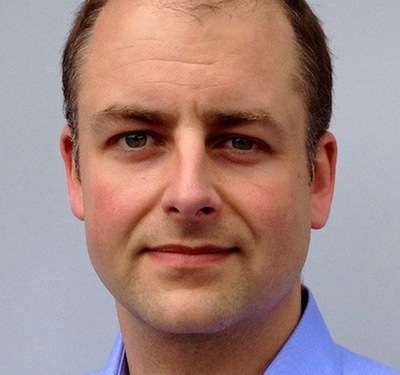- OT
- Industry
- Contact lenses
- “We are small but pioneering”
“We are small but pioneering”
OT talks to Scott Brown, founder of a Scottish specialist contact lens manufacturer, about myopia management

10 May 2020
Scott Brown is unlikely to don a spacesuit or invent a technology that could alter the course of climate change.
But optometrist and owner of West Lothian specialist contact lens company Scotlens is at a different kind of frontier through his involvement in myopia management
“We are at the age of discovery with myopia control. It might not be getting to Mars or a new energy technology, but it feels like the optometric equivalent to me,” he said.
The company has been manufacturing gas permeable contact lenses since 1976 from the small Scottish town of Linlithgow (population: 19,000).
It was the first lab in Europe to receive CE approval for gas permeable lenses. Scotlens has been supplying nocturnal orthokeratology lenses since 2003 and sclerals since 2008.
“We are small but very pioneering,” Mr Brown said.
While the company supplies contact lenses throughout Europe, the majority of its business is within the UK.
In the wake of the coronavirus (COVID-19) emergency, Scotlens has continued to supply contact lenses while operating on a skeleton staff for social distancing reasons.
A key message
Mr Brown told OT that his approach to myopia management begins long before any treatment is prescribed.
He starts by letting the myopic parents of babies know about the importance of time outdoors.

“This is then reinforced as their kids grow up along with the fact that contact lenses may be a better optical solution if myopia starts,” Mr Brown shared.
At the point a prescription is needed, Mr Brown advises his patients and their parents on the optimum mode of correction.
In most cases, Mr Brown shared that this is ortho-k unless a monthly soft lens is preferred for budget reasons or because of the prescription range.
A corneal gas permeable lens may be appropriate if very high myopia is anticipated, Mr Brown said.
He told OT that he takes a conservative approach in his advice to parents about the effect of myopia management.
“I always advise the patient and parents that we can’t know whether the chosen correction will definitely slow down their myopia, but that if we look at groups of patients there is a reduction of 40 – 50%,” Mr Brown shared.
Mr Brown highlighted that in contrast to soft lenses, ortho-k wearers do not have to worry about having a lens case or spare lenses at school.
Before I became an optometrist, I was a skipper and scuba instructor on the west coast of Scotland. I see contact lenses as a way of enjoying life with a freedom you can't get if you have to wear specs
Parents of young ortho-k patients have highlighted the advantages of this to Mr Brown.
“They know that when the kids go to school nothing can happen like specs getting broken or losing a lens,” he said.
Mr Brown observed that some children are not keen to try contact lenses and it is important that they are not pressured into wearing them.
Ortho-k can be popular with younger children as a less obtrusive way of starting to wear contact lenses, he added.
“They seem to feel they get to ‘cheat’ by only wearing the lenses when they sleep,” he said.
Mr Brown shared with OT that his work in contact lenses is rewarding because of the impact he can have on the lives of his patients.
“Before I became an optometrist, I was a skipper and scuba instructor on the west coast of Scotland. I see contact lenses as a way of enjoying life with a freedom you can't get if you have to wear specs,” he said.
Having a lab as part of his practice means he gets to witness the development of new contact lens technology, which then becomes widely available to patients.
“If you think that £40 per month pretty much gets you the latest, custom made technology at the forefront of contact lens manufacture it’s a pretty good industry to be in,” he said.


Comments (0)
You must be logged in to join the discussion. Log in